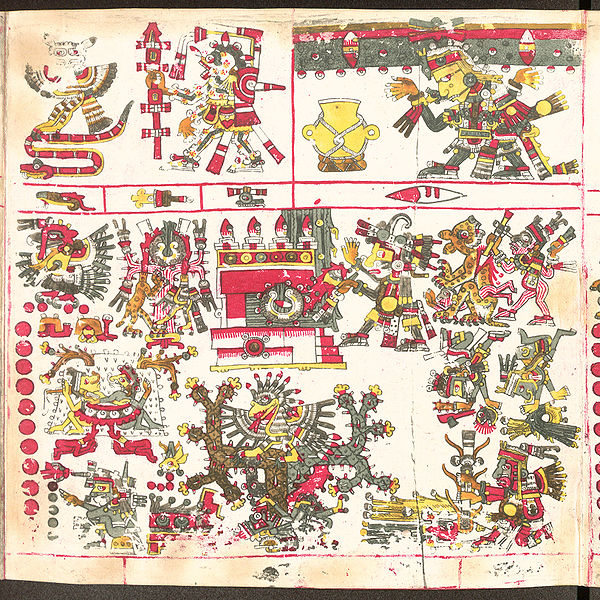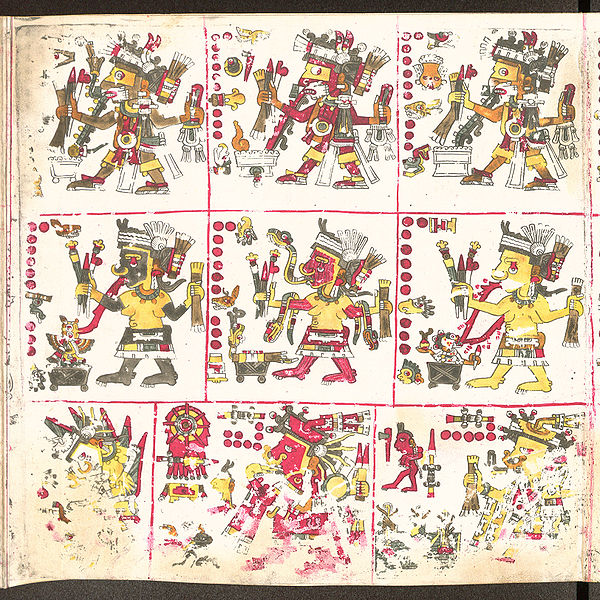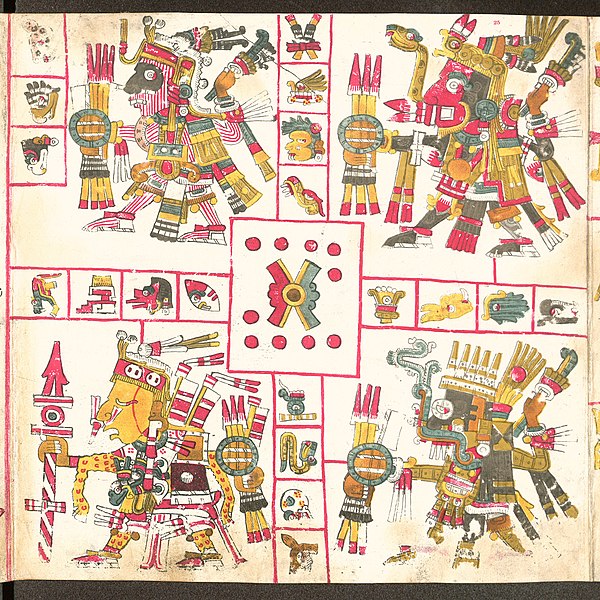In Aztec mythology, Xolotl was a god of fire and lightning. He was commonly depicted as a dog-headed man and was a soul-guide for the dead. He was also god of twins, monsters, death, misfortune, sickness, and deformities. Xolotl is the canine brother and twin of Quetzalcoatl, the pair being sons of the virgin Chimalma. He is the dark personification of Venus, the evening star, and was associated with heavenly fire. The axolotl is named after him.
Xolotl as depicted in the Codex Borgia
Xolotl statue displayed at the Museo Nacional de Antropología in Mexico City.
Codex Borbonicus (p. 16) Xolotl is depicted as a companion of the Setting Sun. He is pictured with a knife in his mouth, a symbol of death.
Codex Borgia (p. 38) Xolotl with Xiuhcoatl "Fire Serpent"
Aztec mythology is the body or collection of myths of the Aztec civilization of Central Mexico. The Aztecs were Nahuatl-speaking groups living in central Mexico and much of their mythology is similar to that of other Mesoamerican cultures. According to legend, the various groups who were to become the Aztecs arrived from the north into the Anahuac valley around Lake Texcoco. The location of this valley and lake of destination is clear – it is the heart of modern Mexico City – but little can be known with certainty about the origin of the Aztec. There are different accounts of their origin. In the myth the ancestors of the Mexica/Aztec came from a place in the north called Aztlan, the last of seven nahuatlacas to make the journey southward, hence their name "Azteca." Other accounts cite their origin in Chicomoztoc, "the place of the seven caves", or at Tamoanchan.

Mictlantecuhtli (left), god of death, the lord of the Underworld and Quetzalcoatl (right), god of wisdom, life, knowledge, morning star, patron of the winds and light, the lord of the West. Together they symbolize life and death.
Huitzilopochtli is raising up the skies of the South, one of the four directions of the world, surrounded by their respective trees, temples, patterns, and divination symbols.
Embodied spirits; Tonalleque (1), Cihuateteo (2).
Patterns of War; (1a) Tlaloc, (1b) Xiuhtecuhtli, (2a) Mixcoatl, (2b) Xipe-Totec.








